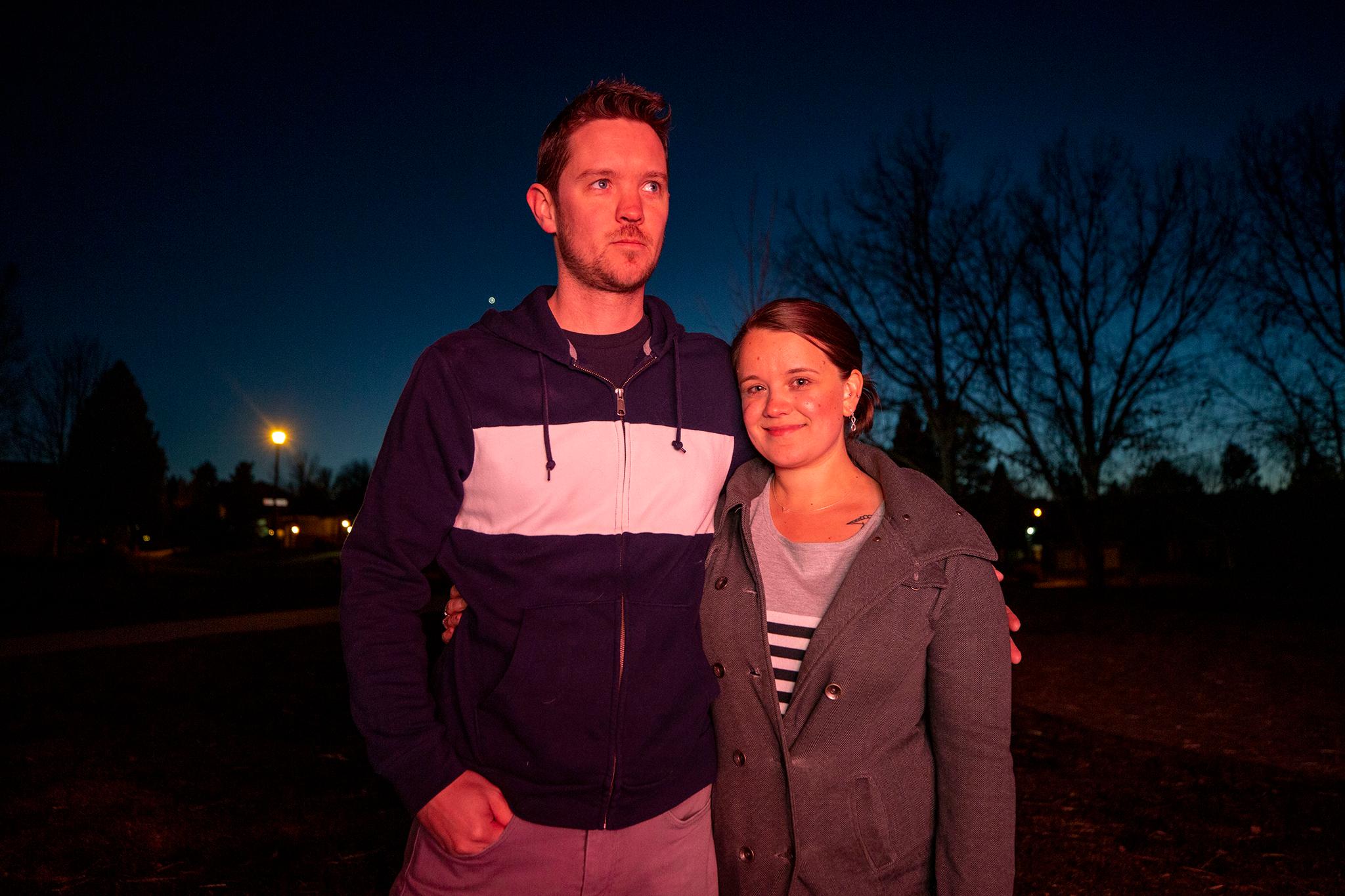Kristen Post had pretty standard goals: get a good job, marry, own a home, have a kid.
A few years back, she earned a master's degree in social work, met her husband, Brett, and got a gig as a social worker doing something she loved. It didn't pay as much as other professions, but her life had purpose. Meanwhile, Brett labored long hours as a warehouse lead at Amerisource Bergen. Neither were paid a fortune, but they were doing well enough to get by and dream of purchasing a house before their next life goal of having a kid.
In 2018, after being married for five years, they found a realtor and started looking for a place of their own. They soon realized the only properties they could afford in the Denver area were "mostly awful townhomes" with homeowners associations with hefty monthly fees, recalled Kristen. Add to that homeowner's insurance, mortgage insurance, student loan debt and daily expenses, and it was pretty clear that homebuying wasn't going to be easy.
Sure, they technically could afford to purchase a home. But would it have been wise in this market?
"The combination of mortgage, insurance and our other bills -- looking at you student loans -- would put us at the absolute maximum end of our budget," Kristen said.
But they kept hoping. They kept trying. They kept feeling pressure to do the standard American Dream thing.
"Even if we did put in an offer on something, we'd get in a bidding war," Brett said. The idea of trying to compete against buyers who could pay outright in cash didn't feel tolerable.
Then the pandemic struck, and they had a kid, explained Kristen. "That takes up some time."
A relative of Kristen's had been dealing with medical issues and needed extra help, so the Posts moved into her large Lone Tree home to assist with daily chores. While they still paid rent, they had a good deal and could save money for a down payment. But with houses getting pricier each year, they realized that was just a fantasy.
They said they've officially given up on ever owning a home again -- at least until Denver's housing market shifts or they move somewhere more affordable.
The housing market may be cooling off, but it's still sizzling.
After years of the Denver housing market skyrocketing, things are stabilizing a bit.
"Earlier in the year, expectations from sellers were that their homes would sell for substantially above asking price," noted realtor Andrew Abrams, chair of the Denver Metro Association of Realtors' Market Trends Committee, in a statement. "While properties are still closing above asking at 101.82 percent of the list price, realities have caught up with expectations. Buyers can be grateful that the extreme bidding wars are less common, and those without 20 percent to put down have a fair shot at a house and the continued low interest rates can keep monthly payments down."
But even if prices truly level out, assuming that's a longish-term trend, families like the Posts still struggle to imagine buying. The median closing price for a single family home was $525,000 as of October, according to the DMAR market trends report. And in recent years, there has been a shortage of family homes on the market. On Nov. 18, there were just 15 two-bedroom single-family homes listed on Zillow for less than $300,000 -- many of which came with high HOA fees.
"Unless something really cool happens with the market or we win the lottery, I'm just not willing to be broke every single month for a house -- to say we own a house," Kristen said.
"We're in a weird financial bracket," Kristen said. "We're not poor enough to qualify for any assistance, but we're very close to that margin. A lot of people in our price range are really competitive and things go quickly, and everybody wants the same thing."
Giving up on home buying, for the Posts, has actually been liberating, Kristen said. They no longer feel burdened by trying to fulfill a dream that didn't make financial sense. But explaining that sense of freedom to older family members who managed to buy a house and raise a kid when the market was more affordable continues to prove tough. Kristen said relatives in older generations can't wrap their heads around why the numbers don't work out for the younger Posts.
"It's a wild time to be a new parent," Kristen said. "It's so different than our parents. You can't explain it to some people in our family."












